‘We are Charlie’ declare Swiss newspapers

The media will not be intimidated by the attacks on French satirical magazine Charlie Hebdo – this was the unanimous message from Swiss newspapers on Thursday, a day after 12 people were killed by masked gunmen in Paris.
“Martyrs for freedom of opinion” was the headline in Zurich’s Tages-Anzeiger, whose front page cartoon showed two graves, one with a headstone for Charlie Hebdo and one for freedom of speech. A coffin already lay in the Charlie Hebdo grave, but another coffin was refusing to get into the second grave.
“The massacre in Paris threatens to exacerbate the conflict between the fanatics who are responsible and Islamophobic forces in the West,” the paper warned.
“Yesterday in France a shared human characteristic was hit in the heart: the freedom of expression, humour,” it said.
The Tages-Anzeiger called on France and Europe to react to the attacks in the same way that Spain reacted to the 2004 Madrid train bombings, which killed 191 people, including many immigrants. “Back then inhabitants of neighbouring districts demonstrated together in Madrid against lethal fanatical violence.”
Indeed hundreds of people around Switzerland spontaneously took to the streets on Wednesday after the shooting, showing solidarity for the victims. Larger gatherings were seen in Geneva, Lausanne and Bern.
The Basler Zeitung’s eye-catching front page was totally white, apart from #JeSuisCharlie, a trending hashtag on Twitter. It, along with other Swiss front pages, can be viewed here:
Enlightenment
“Attack on our freedom!” was the headline in Blick, over a picture of Swiss people holding candles and copies of Charlie Hebdo at a vigil in Geneva.
However, the paper started its coverage with criticism of cabinet minister Doris Leuthard, who oversees the communications portfolio. Leuthard had tweeted “Satire isn’t a carte blanche” before going on to condemn the attacks. In response to incredulous reaction on Twitter, she later said she had been misunderstood.
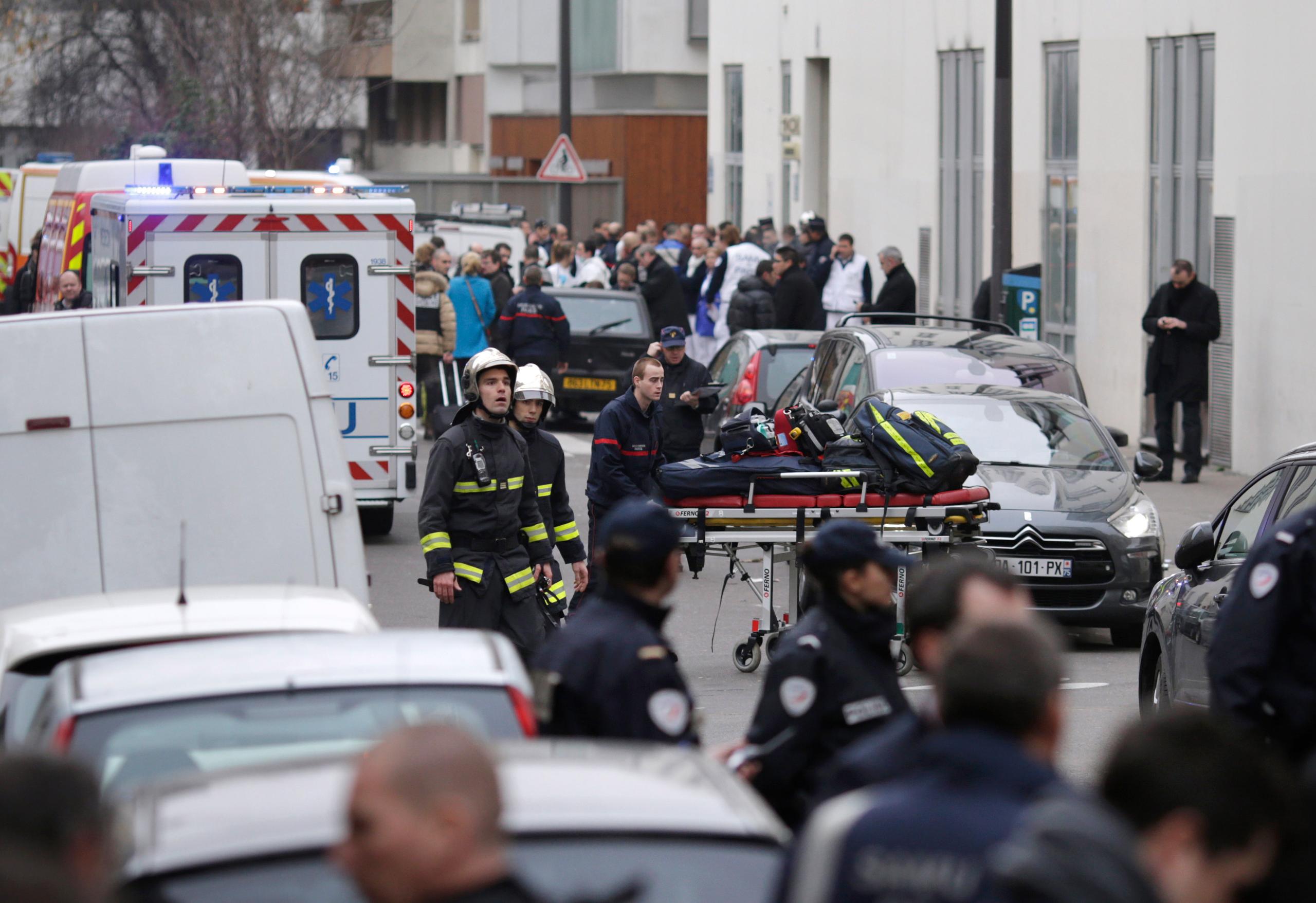
More
Swiss condemn massacre of Charlie Hebdo journalists
“Wrong words, Frau Leuthard!” Blick said. “Given the outrageousness of this action, there can’t be any relativising whatsoever. Other leaders have found the right words.”
“The attack on Charlie Hebdo is an attack on the values of the West: liberalism and individualism, democracy and press freedom,” it said. “Satire has always been an outlet for political statements against the ruling classes. Press freedom is a product of the Enlightenment, which founded secularisation, freedom of religion and rationally led human behaviour.”
“That the murderers want to destroy this central pillar of Western society in the name of Allah shows that they are targeting the core of our Western civilisation.”
The Neue Zürcher Zeitung agreed. “Our modern world, in which thanks to the internet everyone can and may have their say, is strenuous. Everyone has a different opinion, some people spread wrong information while others insult opponents or complain about views that they find unpleasant,” it said.
“We have to accept these comments and barbs in the knowledge that competition and the free circulation of opinions and information are an unconditional element of progress, prosperity and freedom.”
‘No to the barbarians’
In the French-speaking part of Switzerland, front pages featured noticeably more cartoons than those in the German-speaking part.
On the front page of Le Temps, Chappatte drew a grave in the shape of a cross, white on a black background, with the epitaph “Died of laughter”. The paper said: “What can a pencil do against a rocket launcher? What chance did these blood-thirsty idiots give freedom of expression?”
La Tribune de Genève has a cartoon on its front page showing a plane crashing into a giant pencil – a reference to the 9/11 attacks. Under the headline “No to the barbarians”, the paper calls for strengthened efforts “in the battle against Islamist totalitarianism” but without “feeding the fires of Islamophobia”.
In 24 Heures in Lausanne, a cartoon shows a bullet-ridden edition of Charlie Hebdo, with the spilt blood forming an image of a man with a beard and turban who looks like Charlie Hebdo’s depictions of Mohammed.
The front page of Le Matin in Lausanne also features a bloody edition of the satirical magazine. “Freedom, independence. These are the other victims of this terrible day,” the paper wrote.
Many Swiss newspapers re-published Charlie Hebdo caricatures of Mohammed.
‘Not enough prevention’
Swiss Foreign Minister Didier Burkhalter told Swiss public radio, RTS, that the situation in France could not be applied to Switzerland.
“There are differences between the countries, in particular in terms of integration, the respect of differences, society in general and foreign policies. But the fight against terrorism in general – passing from repression to prevention – concerns the international community as a whole. That is why we are involved within a framework of international organisations,” he said.
He then highlighted an initiative taken in Switzerland. “Last year, an international foundationExternal link was created in Geneva which launches projects in regions with many young people who are drawn to religious extremism in order to create new perspectives. There has been repression, but not enough has been done to prevent too many people who are attracted by religious extremism.”
Burkhalter also pointed out that in Switzerland all the responsible security services had been on alert for a long time regarding European jihadists who return from the Middle East. “This commitment will probably need extra funding,” he added.
Global reaction
Messages of condolence, outrage and defiance over the Paris attacks spread quickly around the world on Wednesday, with thousands of people taking to the streets to protest the killings and using the slogan “Je Suis Charlie” (I am Charlie) on social media.
Many who poured into the Place de la Republique in eastern Paris near the site of Wednesday’s noontime attack waved papers, pencils and pens. Journalists led the march expressing solidarity and supporting freedom of speech, but most in the crowd weren’t from the media world.
Similar gatherings, including some silent vigils, took place at London’s Trafalgar Square, in front of the Brandenburg Gate in Berlin, in Madrid, Brussels, Nice and elsewhere.
Online, the declaration “Je Suis Charlie” replaced profile pictures on Facebook while Twitter users showed themselves with the slogan on signs with words of support for the 12 victims who were killed at Charlie Hebdo.
In San Francisco, hundreds of people held pens, tiny French flags and signs that read “I am Charlie” up in the air outside the French Consulate in the financial district.
Several hundred people gathered in Manhattan’s Union Square amid chants of “We are not afraid” and holding signs in English and French saying “We are Charlie”.
In Los Angeles, a small group gathered outside a French restaurant with people holding up signs and cell phones that read “Je Sui Charlie” and “I am Charlie”.
About 1,000 people gathered near the European Union’s headquarters in Brussels to express sympathy and outrage. In Spain, about 200 people in Madrid gathered outside the French Embassy to voice outrage. Some also held pens in the air and chanted “Freedom of Expression” and “We Are All Charlie”.
French students in Stockholm organised about 100 people to lay flowers and candles in front of the French Embassy in the Swedish capital.

In compliance with the JTI standards
More: SWI swissinfo.ch certified by the Journalism Trust Initiative

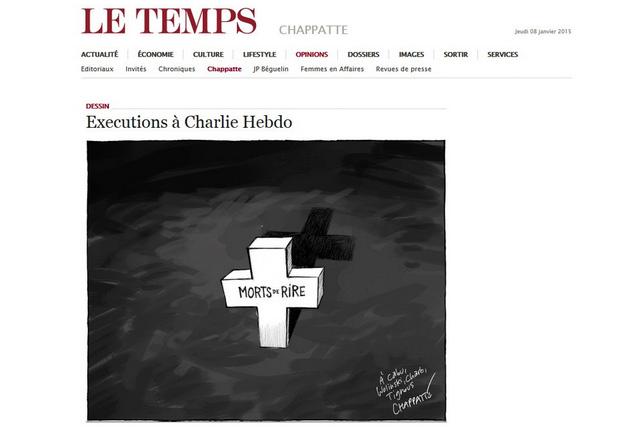
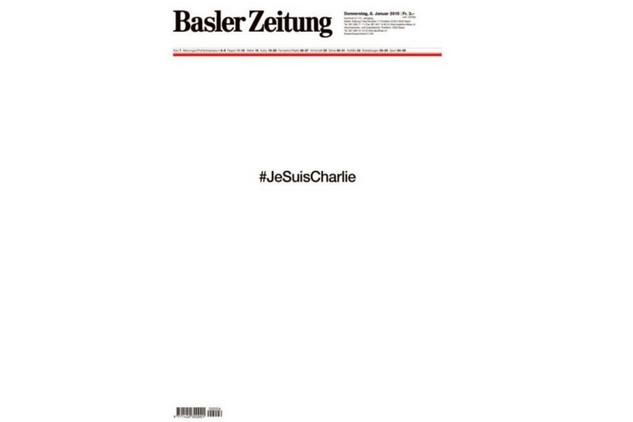
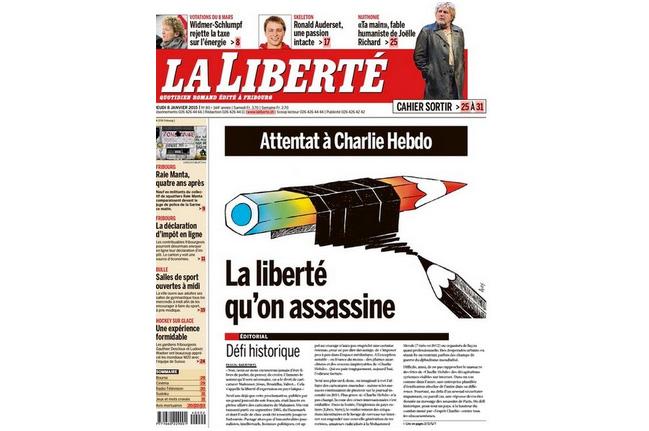
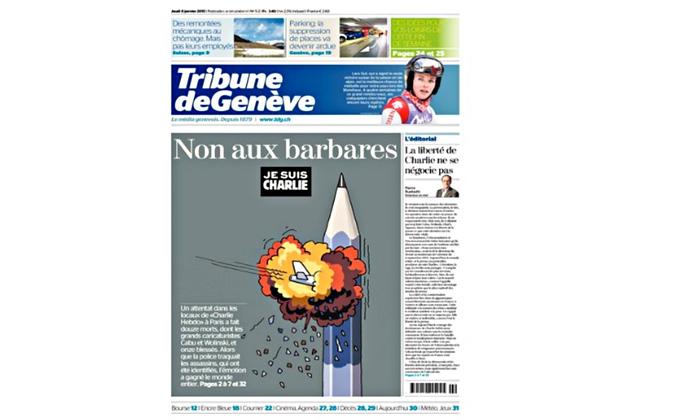
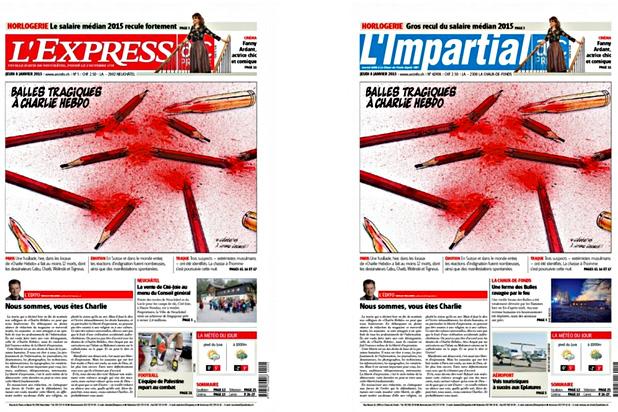
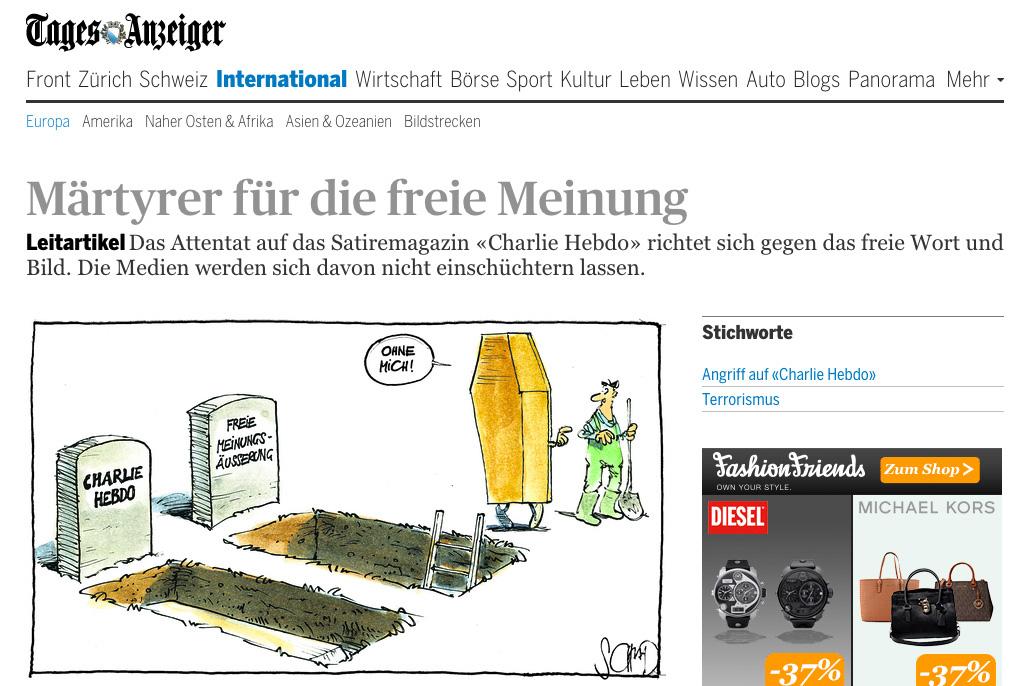
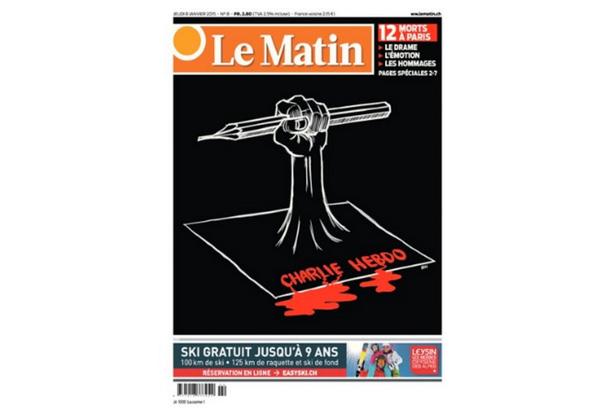
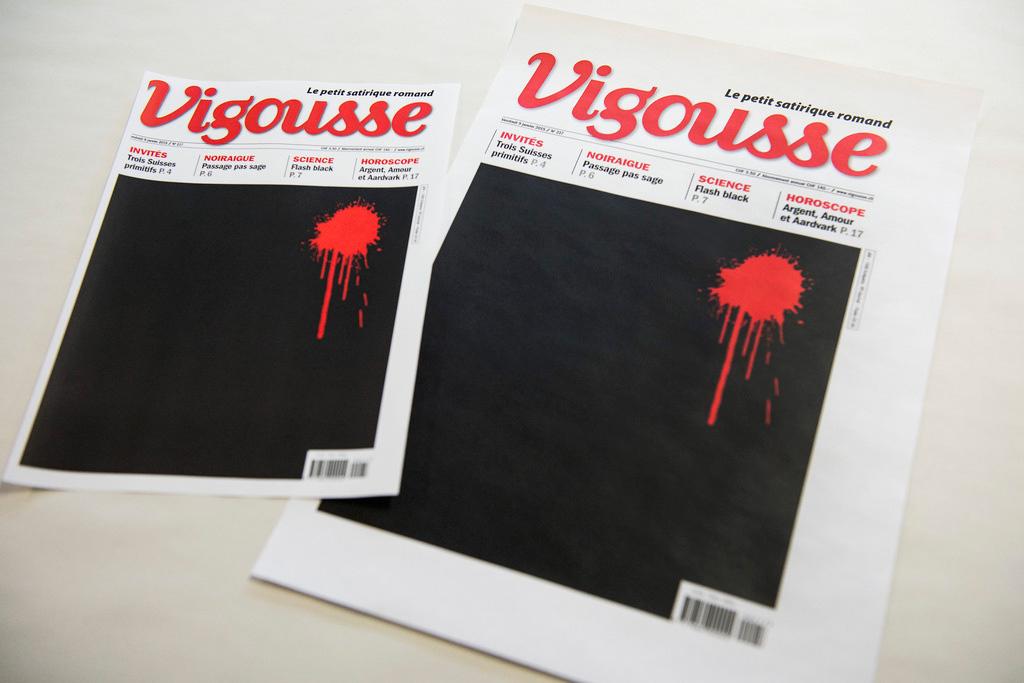

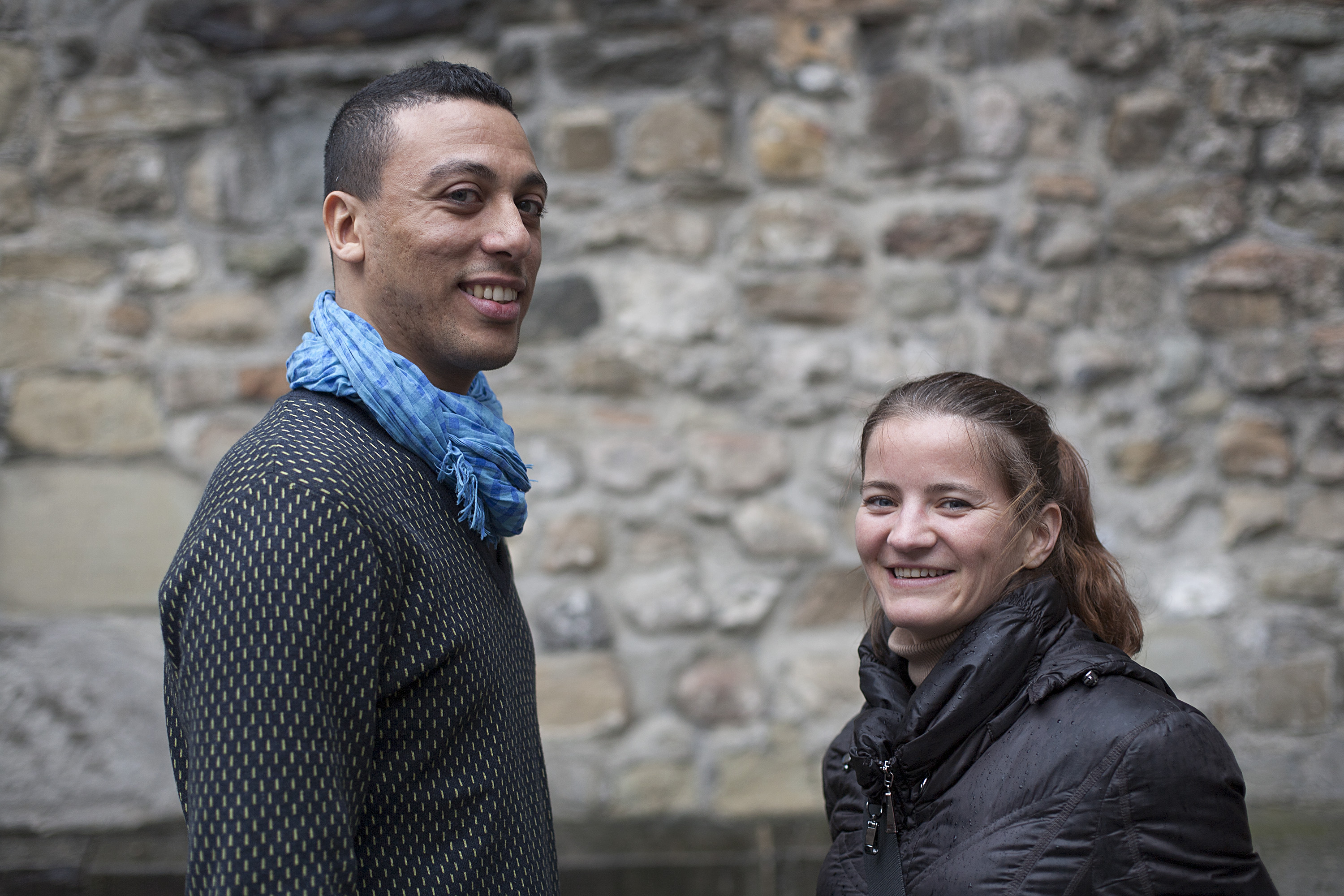
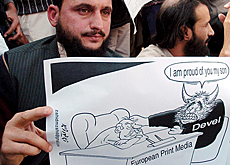


You can find an overview of ongoing debates with our journalists here . Please join us!
If you want to start a conversation about a topic raised in this article or want to report factual errors, email us at english@swissinfo.ch.